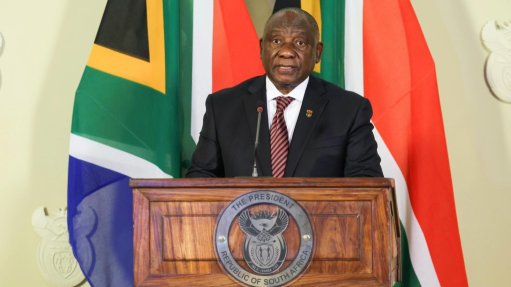Latter-day Cape to Cairo vision
Nineteenth-century British imperialist and entrepreneur Cecil John Rhodes had grand plans to construct a railway line from Cape Town, on the southern tip of the continent, to Cairo, in North Africa. But a continuous line connecting the two cities that runs through Anglophone countries had not been built by the time of his death in 1902 and the venture remains an unaccomplished dream to this day. A major missing link is between northern Sudan and Uganda.
But a new Cape-to-Cairo vision is on the verge of reaching fruition. It is not in the realm of rail, however: it entails the construction of a terrestrial fibre network stretching between the same southern and northern tips of the continent that Rhodes was intent on connecting. The idea is to improve connectivity and ensure access to first-class telecoms services for the people of Africa.
The driving force behind it all is Zimbabwean-born telecoms billionaire Strive Masiyiwa, founder and executive chairperson of Econet Wireless Global, whose Liquid Telecom subsidiary has, for some time, been building a fibre network across Southern Africa, covering Botswana, the Democratic Republic of Congo, Lesotho, South Africa, Zambia and Zimbabwe. Liquid Telecom also has a presence in Rwanda, Kenya and Uganda.
In July, Liquid Telecom inked a memorandum of understanding with Telecom Egypt that will enable it to realise the dream of a Cape-to-Cairo over-land fibre network. The partnership will see Liquid Telecom linking its network from Sudan into Telecom Egypt’s network through a new cross-border interconnection. While Telecom Egypt will grant Liquid Telecom reach through interconnection services, its customers will benefit from Liquid Telecom’s extensive network.
Actually, even if Rhodes had succeeded in building his grand railway line, Masiyiwa’s venture would still be one up on his: whereas the railway line was intended to go only as far as the Egyptian capital city of Cairo, the fibre network will extend all the way to the port city of Alexandria, on the Mediterranean coast. That’s about 178 km from Cairo as the crow flies. Driving at an average speed of 112 km, that’s about two hours away.
Stretching over 10 000 km, the South Africa-to-Egypt network (that is what I prefer to call it) will be the shortest direct fibre route from the southernmost to the northernmost reaches of Africa. This means it will offer much reduced latency between African countries. The network passes through some of the remotest nooks and crannies of the continent, thus connecting previously unserved communities.
Besides telecommunication services, the fibre network – also known as the One Africa network – will yield immense trade dividends for the African countries it traverses. As Masiyiwa said back in July, “Wherever [it] has been completed, we have seen dramatic increases in data traffic between nations connected to it . . . [and] where there is improved communications, improved trade follows as well.” African Export-Import Bank chairperson Benedict Oramah concurred, stating: “The roll-out of infrastructure, particularly high-speed networks, is crucial for stimulating intraregional trade.”
Further, by providing access to high-speed broadband, the One Africa network is laying the foundations for digital growth and innovation across Africa, where start-ups and established businesses are experimenting with emerging technologies like artificial intelligence, Big Data and blockchain, to name a few.
Few people know that we would probably not be talking about Liquid Telecom’s pan- African fibre network if Robert Mugabe had had his way in the 1990s. Back then, his government did its damnedest to block the newly incorporated Econet, Liquid Telecom’s parent, from being the first company to introduce mobile telephony in Zimbabwe, arguing, rather unconvincingly, that telecommunication services should be the preserve of the State, acting through a parastatal or parastatals. A four-year veritable David-versus-Goliath court battle ensued, culminating in victory for Masiyiwa and his company.
Today, Econet is a global telecoms player and Masiyiwa a highly regarded business mogul with an estimated net worth of $3-billion. God bless those judges who followed their conscience and refused to do Mugabe’s bidding.
Article Enquiry
Email Article
Save Article
Feedback
To advertise email advertising@creamermedia.co.za or click here
Announcements
What's On
Subscribe to improve your user experience...
Option 1 (equivalent of R125 a month):
Receive a weekly copy of Creamer Media's Engineering News & Mining Weekly magazine
(print copy for those in South Africa and e-magazine for those outside of South Africa)
Receive daily email newsletters
Access to full search results
Access archive of magazine back copies
Access to Projects in Progress
Access to ONE Research Report of your choice in PDF format
Option 2 (equivalent of R375 a month):
All benefits from Option 1
PLUS
Access to Creamer Media's Research Channel Africa for ALL Research Reports, in PDF format, on various industrial and mining sectors
including Electricity; Water; Energy Transition; Hydrogen; Roads, Rail and Ports; Coal; Gold; Platinum; Battery Metals; etc.
Already a subscriber?
Forgotten your password?
Receive weekly copy of Creamer Media's Engineering News & Mining Weekly magazine (print copy for those in South Africa and e-magazine for those outside of South Africa)
➕
Recieve daily email newsletters
➕
Access to full search results
➕
Access archive of magazine back copies
➕
Access to Projects in Progress
➕
Access to ONE Research Report of your choice in PDF format
RESEARCH CHANNEL AFRICA
R4500 (equivalent of R375 a month)
SUBSCRIBEAll benefits from Option 1
➕
Access to Creamer Media's Research Channel Africa for ALL Research Reports on various industrial and mining sectors, in PDF format, including on:
Electricity
➕
Water
➕
Energy Transition
➕
Hydrogen
➕
Roads, Rail and Ports
➕
Coal
➕
Gold
➕
Platinum
➕
Battery Metals
➕
etc.
Receive all benefits from Option 1 or Option 2 delivered to numerous people at your company
➕
Multiple User names and Passwords for simultaneous log-ins
➕
Intranet integration access to all in your organisation

















